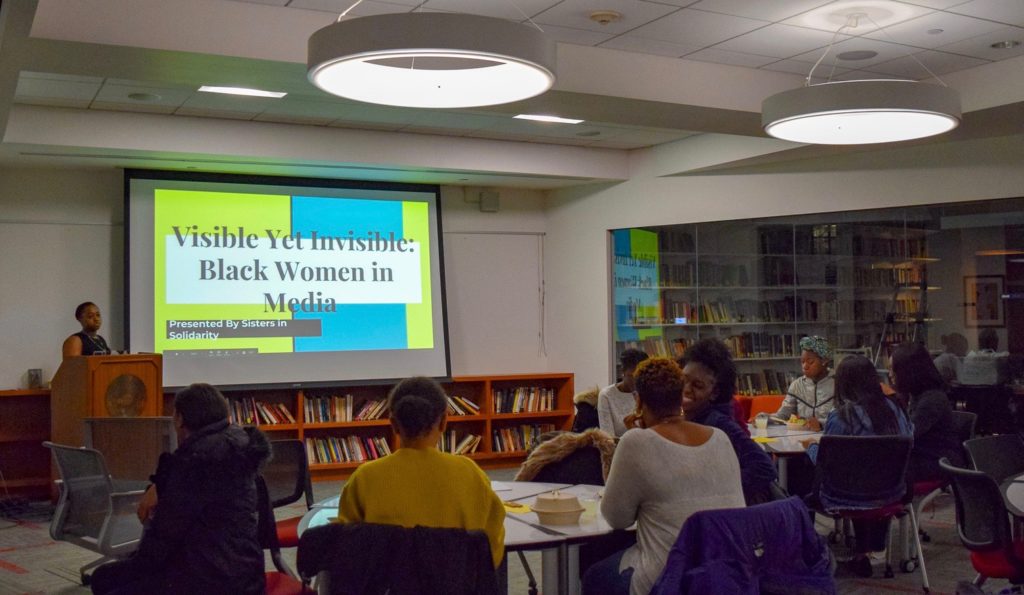By Taylor Driscoll, news correspondent
Sisters in Solidarity, a Northeastern student group promoting unity and cultural engagement for women of color, hosted a discussion-based event Monday about how black women are portrayed in popular television shows and movies.
The discussion, which was held in the John D. O’Bryant African American Institute, was titled “Visible Yet Invisible: Black Women in Media.”
Participants reminisced about their favorite childhood shows featuring black women, like Disney Channel’s “That’s So Raven” and “The Proud Family.” Some women in the crowd said they wanted to be just like Raven and Penny Proud when they were younger. Then the question was posed by the program’s leader, Dai’Ja Spaulding, a fourth-year English major:
“Who thinks there is something missing from current media?”
Most of the young women in the room raised their hands.
Michelle Faulkner, a second-year journalism major, said she was excited for the discussion because she felt it was important for young black women to have a conversation about what they see on television and how it impacts them.
“We can relate to each other,” Faulkner said. “Media represents everything, and it’s important how it represents us.”
Attendees discussed relationships between black women and men in media and typecasting of characters that either focus on aggressive pro-black activism or black women who have assimilated to white culture. They also discussed the trend of directors casting lighter-skinned black women in positive roles, but not darker-skinned black women.
Spaulding showed slides with four popular TV shows featuring black female leads: HBO’s “Insecure” and the Netflix series “She’s Gotta Have It,” “Chewing Gum” and “Dear White People.”
Spaulding underscored the significance of “Dear White People,” which portrays the lives of black students at Winchester University, a fictional, predominantly-white Ivy League school.
“It’s talking about respectability to both our people and white people,” Spaulding said. “I felt that it was important to see what it’s like to be at a [private white institution] as a woman of color.”
Alyson Del Castillo, a fifth-year behavioral neuroscience major, said the discussion helped her think about what changes could be made to improve media depictions of black women.
“I think it is important to discuss these kinds of things so we know what we want to see and support,” she said.
Considering the prevalence of negative images of black female characters on television, Spaulding said she thought the conversation would help black women avoid taking those messages to heart.
She said the conversation should continue and that she wants to see more shows like the ones presented at the event.
“I just want black women to have these conversations for themselves,” Spaulding said, “and to take a critical look at how black women are characterized.”









